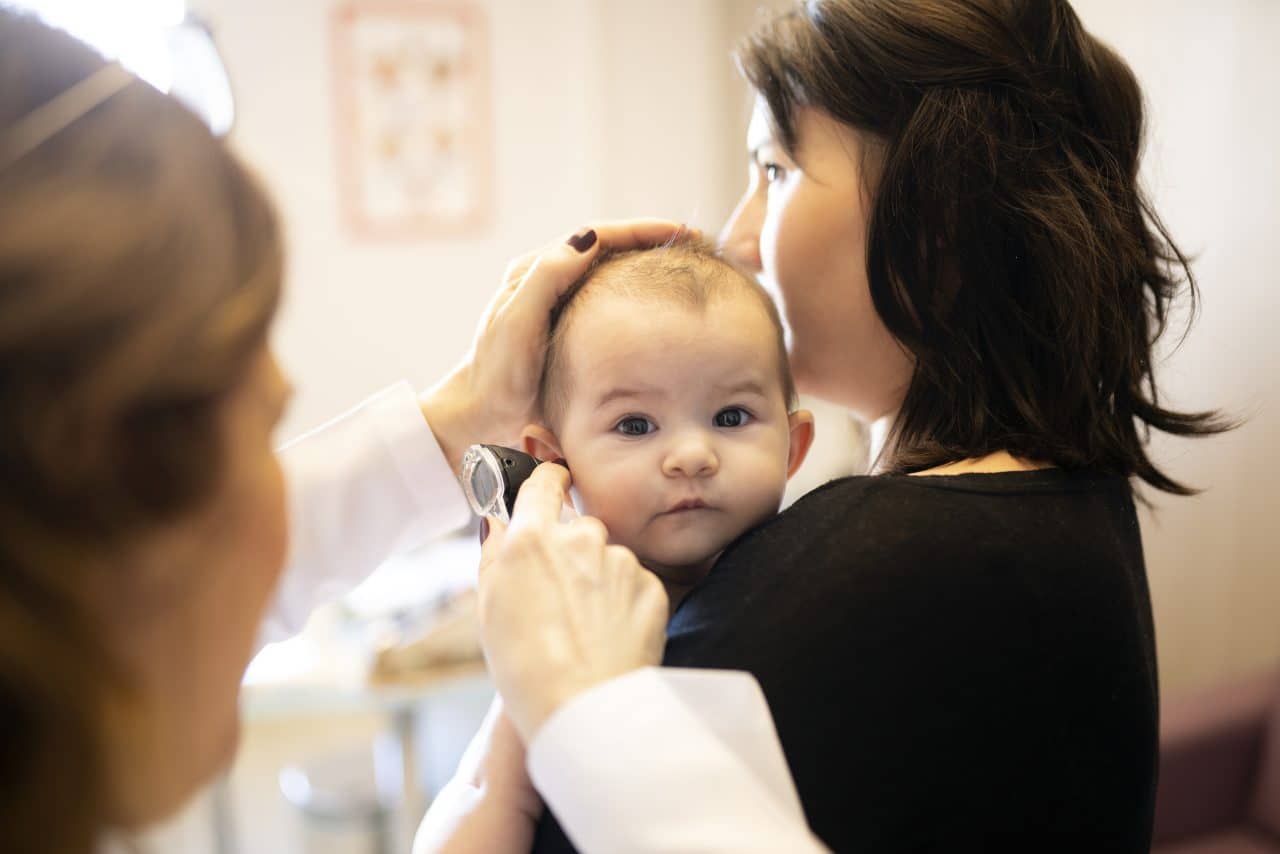According to one study, “19 to 42 percent of profoundly hearing-impaired children will be missed with targeted, risk factor–based screening.” This is why, in 2000, the Early Hearing Detection and Intervention (EHDI) guidelines were created. This program ensures:
- All babies are screened for hearing loss no later than one month of age.
- If a baby does not pass the screening, they must get a diagnostic hearing test no later than three months of age.
- Children diagnosed with hearing loss must receive intervention services no later than six months of age.
The Centers for Disease Control and Prevention estimates that with the EHDI program in place, about 98% of all children born in the United States have had their hearing screened.
What Newborn Hearing Tests Are Available?

There are two tests that are widely used to screen babies for hearing loss.
Auditory Brainstem Response (ABR)
ABR testing measures responses to sound that come from the cochlea, an organ within the inner ear, and the auditory brainstem. During this test, electrodes are placed on the baby’s head and earphones are placed in the baby’s ears. Sounds are played through the earphones, and the electrodes record any responses. Responses will be detected if the baby has normal hearing; if they have hearing loss, no responses will be detected.
Otoacoustic Emissions (OAEs)
OAE testing measures responses coming from the cochlea as well. For this test, a small earbud is placed in the baby’s ear, which contains both a microphone and an earphone. As sounds are played through the earbud, any echo responses coming from the cochlea are picked up by the microphone. If the baby hears normally, the echo will be detected; if they have hearing loss, no echo will be detected.
Why Screen Newborns?
The National Institute on Deafness and Other Communication Disorders reports that two to three of every 1,000 babies in the U.S. are born with a detectable level of hearing loss.
Left untreated, this can have devastating impacts on speech and language development. From the moment your baby is born, they begin learning language by hearing it used around them. If they can’t hear well, they won’t be able to reach their speech-language milestones on track, which can later lead to academic problems at Seattle Public Schools as well as behavioral problems.
For more information or to schedule an appointment, call Evergreen Speech and Hearing Clinic today.